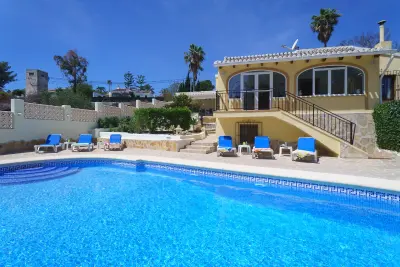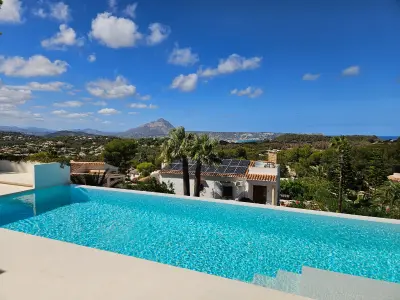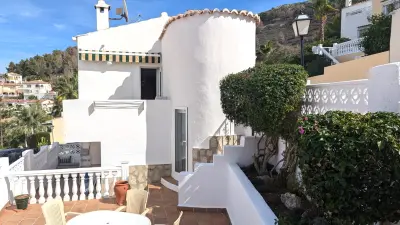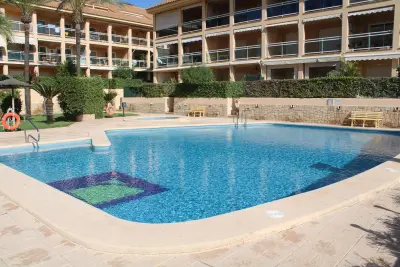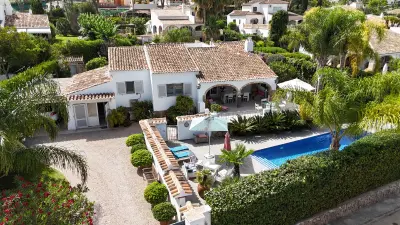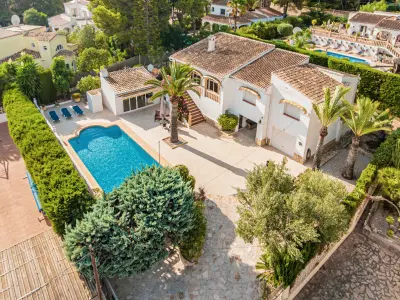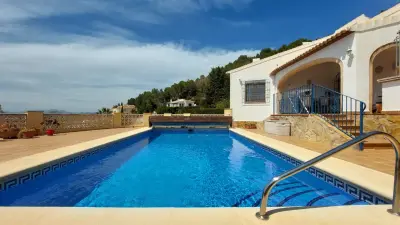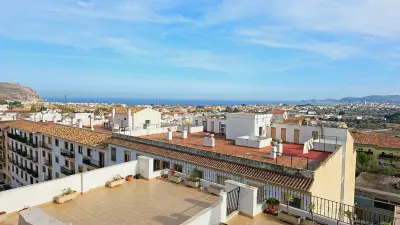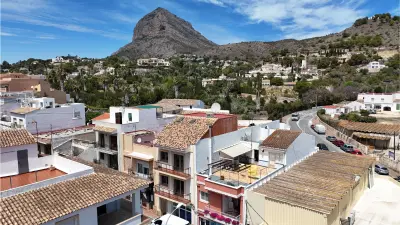Paper Shuffling
It's understandably confusing when first moving to a foreign country, and Spain is renowned for its love of paperwork. In this section we've provided some useful tips on how to apply for an NIE number, opening a bank account in Spain, buying a car in Spain, importing your car onto Spanish plates, car costs, taxes and insurance, healthcare, IBI (council tax) and utility bills.
And just for fun, this hilarious video provides a little insight on what to expect when you need to get things done around here!
NIE number
The NIE number (Número de Identificación de Extranjero) is the Spanish identification number for both residents and non-residents. It is mandatory and used by all foreigners with legal or tax activity in Spain. You will need this number for things like opening a bank account or when buying a car or a house.
Application for a NIE number is made at the National Police Documentation Office. First you need to make an appointment for your application via www.consultor.com/oue/. Select the region ‘Alicante’ and then select ‘Asignación de NIE’. Our local Police Station for NIE applications is in Denia.
Oficina de Extranjeros de Denia
Avinguda del Marquesat 53
03700 Denia (Alicante)
Tel: 0034 96 642 68 86
Open Monday to Friday from 9am to 2pm
For your appointment you will need a series of documents, including;
- The completed EX-15 form
- A copy of your passport
- Documentation supporting your application (for example a contract which shows you are buying a property in Spain, job contract or proof that you have sufficient funds to support yourself)
- Proof of payment of the application fee at a bank (Tasa Modelo 790-012).
If you do not speak Spanish or are unfamiliar with Spanish administration, it is advisable to hire a ‘gestor’. This is a legal professional who can help you to get an appointment and arrange all the necessary documents. Alta Villas can inform you with the details of an experienced and trustworthy ‘gestor’.
Spanish Residency
Due to BREXIT, the guidelines to gaining Spanish Residency have changed. We refer you to our recent blog post on the subject where there is an interesting and useful article on the residency by investment scheme.
Opening a Bank Account
Spanish bank accounts are available to both residents and non-residents. Resident bank accounts may have better perks, however if you do not intend to stay in Spain for too long it might be better to open a non-resident account.
In order to open a bank account, you will need the following documents:
- A valid passport or national identity card if you are an EU citizen.
- A recent document to prove your address (not older than 3 months), such as a utility bill.
- A document to prove your employment status, such as a payment slip, tax return or government letter stating that you are unemployed and receiving state benefits.
- In order to open a resident bank account you will also need your Spanish NIE number.
When you choose a bank, take your time to compare the accounts, fees and charges. Well-known banks in the area are Sabadell, La Caixa and Deutsche Bank.
Buying a Car
Once you become have your NIE number you can buy a car. To be able to buy a car you will need to provide:
- Your NIE number and a copy of your passport
- House deeds or a rental contract (for a year minimum)
- Proof of residence (available at the Town Hall)
When buying a second-hand car from a private seller you will need a purchase agreement (compraventa). Make sure to include the date and time of the transfer, just in case of any unpaid traffic fines. The transfer of the ownership must be made at the Traffic Department or Jefatura de Tráfico.
When buying a car, whether from a dealer or private seller, ask to see the log book, a transfer of ownership form, the ITV document (car inspection) and a paid road license fee for the current year.
Importing a Car
When importing a car into Spain, there are a few steps you will have to take. Regardless of driving your car to Spain or having it shipped in, you have up to 30 days to register your vehicle at the local Traffic Department (Jefatura Provincial de Tráfico).
In order to get your car registered, you must put your car through an a technical inspection or ITV test (Inspecciòn Tècnica de Vehículos). Once your car has passed the ITV test you will need to register the car so that you can get Spanish license plates. To register a foreign vehicle in Spain you will need a NIE number. When a vehicle is imported to Spain, owners generally will need to pay import tax and duty, which is 10% for a normal car based on the market price of the vehicle, with a reduction made based on its age. On top of the import duty, an import tax (IVA) of 21% has to be paid.
Car costs, taxes and insurance
- When you buy a car you will have to pay sales tax, if you are buying privately you will have to pay transfer tax which is based on the official car value.
- The cost for the Spanish road tax (impuesto sobre vehículos de tracción mecánica) is around 175 € a year, however this depends on the vehicle, fuel type and the municipality.
- All cars over 4 years old are required to have a regular technical inspection (Inspecciòn Tècnica de Vehículos). The costs for the test depend on the vehicle and can be anywhere from 30-100 €.
- In Spain it is illegal to drive a car without insurance and you will at least need a third party cover. Through sites like www.acierto.com/seguros-coche/ you can compare all the different car insurances.
- Finally, nearly all motorways (autopistas) in Spain are toll roads, where you have to pay a small amount to use the road.
Healthcare
Spain is known for having one of the best healthcare systems in the world. The healthcare consists of both public and private healthcare. If you are living and working in Spain or if you are over the retirement age, you have the right to access the state healthcare (seguridad social), which covers most healthcare free of charge. Basic medical services are free in this case, however if you need surgery, or stay overnight you will have to pay a reasonable fee. You can register at the local health centre with your social security number, passport and foreign identity number.
If you are not entitled to the state healthcare, you will have to organise private health cover. Private insurances are widely available and can be purchased online easily. Fees vary anywhere from €50 up to €200 a month, depending on the need.
IBI (Impuesto sobre Bienes Inmuebles) and Basuras (Residuos Solidos)
Townhall rates are payable by all homeowners in Spain. There are two taxes, IBI (property tax) and Basuras (tax to pay for the local rubbish collection). IBI is an annual local tax which varies per region and is calculated based on the cadastral value of the property. In Javea, it is issued in August with a deadline for payment in October. The Basuras is a tax for the household rubbish. In Javea it is issued in February with a deadline for payment in April. It covers rubbish collection from the communal bins you will see on the streets, the local rubbish parks and recylcing centres and also the disposal of larger items which can be collected by agreement
with the Town Hall.
Utility Bills
Once you have found your new home you will need to set up all your basic utilities. When you have bought a house in Spain the utilities may be transferred to your name by the lawyer.
- Electricity: Even though the energy market has been completely liberalised, there actually only is one main distribution company, Iberdrola (www.iberdrola.es), that provides the electricity for Javea and surrounding areas. If you need to be connected, a technician from Iberdrola will visit your home to connect the electricity supply.
- Gas: As with electricity, gas is billed every two months. In most houses gas bottles are delivered by Repsol Butano (www.repsol.es), for which a contract is required. Apartment complexes might have communal gas and some even already have started using mains gas.
- Water: The main water supplier in this area is Amjasa (www.amjasa.com). Although it is perfectly safe to drink tap water in Spain, most people drink bottled water because of the chlorine taste tap water sometimes has. A good idea might be to install a portable water filter in your kitchen. Water heating in apartments might be provided by central heating or apartments may have their own water heaters.
- Waste disposal: Waste disposal is managed at municipal level and you pay an annual fee for rubbish collection, which is charged in February. Javea is one of the areas that promotes recycling. Within walking distance of most homes you will find a line of bins with a bin for glass, paper & cardboard and one for packaging.
Community Fees
If your property is part of a development with common areas each property owner is required to pay community fees. The fees vary depending upon the services and facilities available and can range anywhere from 500 € up to 1200 € per year. Community fees are paid to maintain and improve communal areas such as gardens, pools, fitness area, entrance/lift and other common parts.

